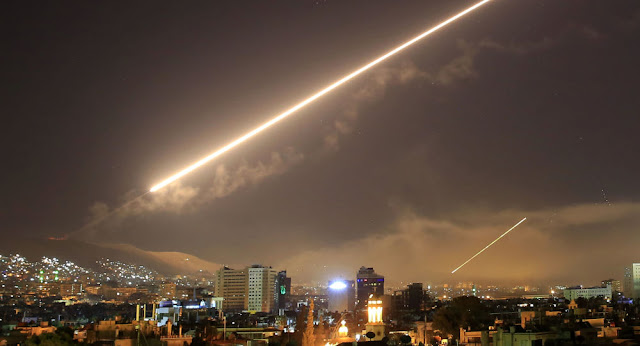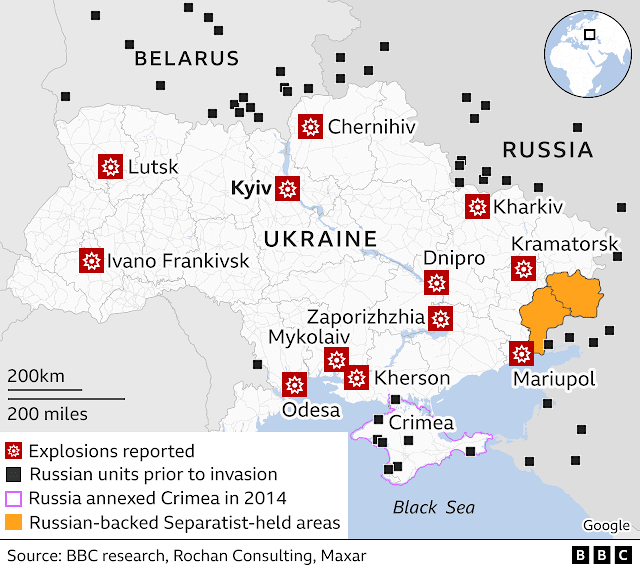TOPIC: The Geopolitics of a Theoretical Israeli Strike on Iran
Things are not going well in Vienna. Attempts to revive the failed JCPOA are turning in to failure, despite the talks only being in their early stages. If these talks fail and Iran continues to enrich uranium at its current rate, then the Middle East is set for a catastrophic collision. Israel views Iranian attempts to obtain nuclear weapons as a 'red-line', even if its new Prime Minister, Naftali Bennett, refuses to say as much. If this red-line is crossed, then Israel is likely to strike at Iranian facilities, sparking a regional conflict that could quickly spiral out of control. In this scenario, what are the wider geopolitical implications for the Middle East?
The Direct Response
Whereas Iran has sat on its hands before when its nuclear efforts have been sabotaged by the Israelis, this is likely not a viable response this time around . Ebrahim Raisi is a renowned hardliner, whilst the scale of the Israeli attack in order to strike multiple locations deep within Iran would be unprecedented. Many Iranian lives would be lost and with the current regime already verging on unpopularity, it would be forced by public opinion to strike back and to strike back hard. Failure to do so, could result in mass unrest.
For Iran, its options for conventional retaliation are limited. The Iranian air force would struggle to penetrate Israeli air defences, or to even successfully pass the heavily armed and well trained Israeli air force. Its land army is necessary for the defence of the state and the preservation of national unity, so these conventional arms are largely useless. What Iran would be most likely do is to utilise its wide range of missiles, proxies and basing sites across the Middle East to launch attacks directly upon Israel. From Lebanon, Syria and possibly even Iraq and Palestine, Tehran would encourage its proxies to rain down hell upon the famous 'iron dome' defence system that guards Israeli skies. It would attempt to overwhelm these defences with low tech volleys of missiles and mortar strikes, with the overall aim to inflict mass terror and casualties on Israeli urban areas. At the same time, it could be expected for Hezbollah, the Iranian proxy group, to initiate wider attacks on Israeli occupied areas, such as the Golan Heights or the Palestinian territories. At the same time, another Intifada could not be ruled out. All that would be certain is that Israel could not hope to save itself from widespread damage, despite how effective the iron dome has proved to be in the past.
The Wider World and Region
The response beyond Iran however, would be the most telling. Though the western powers and the United States would largely breath a sigh of relief at the destruction of Iranian nuclear capability, the ambition for another lengthy Middle Eastern conflict does simply not exist. This is especially so under the Biden administration. Herein, sanctions on Iran and support of Israel in the form of military aid would be the prime response, though if Iran decided to attack American bases across the region, then American retaliation could be decidedly more aggressive. Ultimately, Tehran would likely acknowledge that its optimal response would be to damage Israel, without taking things too far. As long as Israeli existence isn't threatened, then the West is unlikely to act to offensively.
This would largely be the case for the Arab states across the Gulf. Whereas they may support, or possibly even finance an Israeli strike on Iran, they are not ready for war. The failure in Yemen has exposed Saudi vulnerabilities even in the case of a minor military conflict, whilst the UAE would be in the direct firing line of any conflict in the Persian Gulf. Neither of these nations have the will for another damaging conflict as their economies ready themselves for a seismic transition across the coming century.
The Best of the Worse?
Thus, in this scenario, it is Israel that would bear the brunt of Iranian response. Mass casualties would be expected, but Iran would likely not take things too far, fearful of further drawing the ire of other nations or provoking civil unrest in that of its own. Despite what the doom-mongers may say, attack and response would be limited, with a regional war in nobodies favour. Ideally, the JCPOA is somehow restored and diplomacy wins the day. Yet a successful Israeli strike on Iran is not necessarily the worst outcome for the Middle East. In fact, failure to stop Iranian ambitions could lead to the proliferation of nuclear weapons across the Middle East and beyond, leading to a far more deadly conflict further down the line. But more on that in tomorrow's article.
(Image Source: https://www.asianews.it/news-en/Israel-attacks-Iranian-targets-in-Syria-(again),-11-dead-46022.html)



Comments
Post a Comment